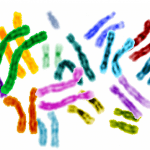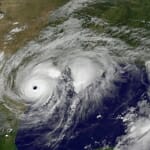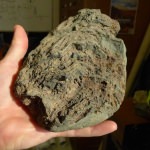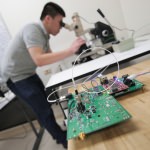Tag Data
UW–Madison VisPy data visualization project awarded Chan Zuckerberg Initiative grant
A programmer is working to make scientific data easier to picture, from creating images of spiral galaxies based on theoretical data to visualizing satellite imagery. Read More
New tool predicts three-dimensional organization of human chromosomes
The predictive tool is a boon for researchers studying how cells control the activity of genes, helping explain how cells achieve their key functions and how they go haywire, as happens in diseases such as cancer. Read More
Professor will make ‘workhorse’ microscope more powerful
Kevin Eliceiri says he has always believed that science is best done by building on the work of others and openly sharing what you have done. Read More
UW alum masterminding next generation data storage: A solution to the datapocalypse?
In a meeting at the Weinert Center for Entrepreneurship at the Wisconsin School of Business, Hyunjun Park said the device will hold digital information in DNA – life’s evolution-perfected “data storage” molecule. Read More
Reddit competes to visualize Madison’s prized Lake Mendota ice data
Data visualizations generated by a Reddit competition reveal a concerning trend that’s been known to scientists at UW–Madison and elsewhere for decades: ice is disappearing on Lake Mendota. Read More
Multi-university collaboration will use data science to find the next El Nino
A new collaboration involving UW–Madison will develop novel data science tools to sniff out hidden weather patterns, improving weather forecasts and scientific understanding of global climate. Read More
Study finds fewer middle-skill jobs in U.S. than estimated
Using a new skills index based on federal data, the study finds that 16 percent of all jobs require training beyond high school but less than a bachelor’s degree, compared to previous estimates of one-third to more than one-half of total employment. Read More
UW-Madison makes it easier to pursue a career in data science and analytics
A new website makes it easier for professionals to tap into UW–Madison graduate programs that prepare them for careers in the burgeoning field of data science and analytics. Read More
UW-Madison launches data science initiative
“The pace of change in the data science field is extremely rapid, and we think the data science initiative is one very good way to keep UW–Madison research on pace with those changes,” says Associate Vice Chancellor Steve Ackerman. Read More
UW-Madison researchers create tools to help farmers’ markets
Farmers market managers quickly learned that digging into data created by a tool from UW–Madison researchers can offer incredible insights and identify new opportunities. For instance, the market in Monroe, Wisconsin, discovered a large number of visitors from the Chicago region. Read More
Madison company obtains FDA approval for sleep-data software
Ensodata, a UW–Madison spinoff that sifts through mountains of data from studies at sleep centers, received approval from the Food and Drug Administration on April 11 for its main product to be a medical device. Read More
Massive, computer-analyzed geological database reveals chemistry of ancient ocean
Why did easy-to-see and once-common structures called stromatolites essentially cease forming over the long arc of earth history? Read More
A data tool for homeowners to make rain gardens more effective
A UW–Madison team is using a combination of outreach, sampling and detailed watershed modeling to remove obstacles that prevent more widespread use of green infrastructure, and, more importantly, evaluate which green infrastructure strategies are most effective in which areas. Read More
Liquid silicon: Computer chips could bridge gap between computation and storage
Computer chips in development at the University of Wisconsin–Madison could make future computers more efficient and powerful by combining tasks usually kept separate by design. Read More
Computer-generated database of diffusion values is shared online
University of Wisconsin–Madison engineers recently used powerful computers to quickly and accurately develop the world’s largest computed database of information about an important materials-mixing process called diffusion. Read More




















